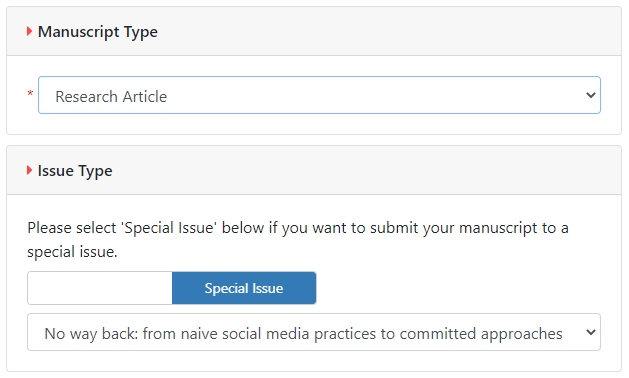Special Issue
No way back: from naive social media practices to committed approaches
Guest Editors
Victoria I. Marín, University of Lleida (Spain) (victoria.marin@udl.cat)
Gemma Tur, University of the Balearic Islands (Spain) (gemma.tur@uib.es)
Special-Issue focus, scope, and rationale
In recent years the need for a critical approach to educational technology has received some marginal attention (Castañeda & Selwyn, 2018) and the shift to online teaching since the COVID-19 crisis has further drawn critical attention to educational technology use. Numerous challenges in relation to students’ privacy have emerged from pandemic pedagogy worldwide such as video conference sessions invading private spaces, the uptake of opaque social media services, the large-scale student data collection, and the use of surveillance and proctoring software for learning and assessment (Bozkurt et al. 2020; Williamson et al., 2020). In consequence, datafication of learning has dramatically increased during lockdown although previous research had already raised issues such as marketisation of data and the alignment of economical and political neoliberal agendas for surveillance along with other issues in relation to true self-regulated learning (Marín, Carpenter, & Tur, 2020) and, digital colonialism and epistemic injustice by excluding marginalised knowledge (Adams, 2019). The development of social media for learning two decades ago supported the shift to student centered methodologies for autonomous learning -which will remain paramount in the future for online learning (Karatas & Arpaci, 2021)- , but privacy was not at the core of the pedagogical design of those activities, as different literature reviews show (Greenhow & Askari, 2017; Malik et al., 2019; Otchie & Pedaste, 2020; Zachos et al., 2018). Nowadays, the current focus on privacy issues, the development of data literacy frameworks, along with the claim for caring approaches to online teaching, may allow the advent of a new era in which students’ personal learning environments will be radically different. Thus, we are interested in new research to extend knowledge from critical approaches but also, we are particularly interested in educational practice where privacy and caring are core elements of committed virtual learning environments, in any educational level. We believe that now there is no way back to early naïve practices and that we must go for practices that consider the non-neutrality of social media in education.
Topics of interest include, for any educational level and formal/non-formal education, but not limited to:
- Theoretical frameworks which develop critical approaches to digital competence and data literacy regarding the educational use of social media, including teachers’ and student teachers’ skills
- Studies on critical use of social media from cultural approaches and self-identity constructions
- Studies on the implications of privacy issues related to social media at institutional level as well as for non-formal institutions, informal communities, and families
- Empirical studies from critical approaches to data-driven online teaching and proctoring-based assessment related to social media
- Case studies based on educational experiences or practices:
- with non-transparent social media from critical approaches
- with ethical and transparent social media use for students’ autonomous and self-regulated learning
- for ethical, transparent, and inclusive assessment processes using/supported by social media
- based on caring practices in which students’ privacy in social media is addressed from well-being and empathic relationships, along with equitable, inclusive or/and gender approaches
- based on ethical approaches to privacy issues in social media in the context of the pandemic pedagogy
References
Adam, T. (2019) Digital neocolonialism and massive open online courses (MOOCs): colonial pasts and neoliberal futures. Learning, Media and Technology, 44(3), 365-380. https://doi.org/10.1080/17439884.2019.1640740
Bozkurt, A., et al. . (2020). A global outlook to the interruption of education due to COVID-19 pandemic: Navigating in a time of uncertainty and crisis. Asian Journal of Distance Education, 15(1), 1-126. Retrieved from http://www.asianjde.org/ojs/index.php/AsianJDE/article/view/462
Castañeda, L., & Selwyn, N. (2018). More than tools? Making sense of the ongoing digitizations of higher education. International Journal of Educational Technology in Higher Education 15, 22. https://doi.org/10.1186/s41239-018-0109-y
Greenhow, C., Askari, E. (2017). Learning and teaching with social network sites: A decade of research in K-12 related education. Education and Information Technologies, 22, 623–645. https://doi.org/10.1007/s10639-015-9446-9
Karatas, K. & Arpaci, A. (2021). The Role of Self-directed Learning, Metacognition, and 21st Century Skills Predicting the Readiness for Online Learning. Contemporary Educational Technology, 13(3). https://doi.org/10.30935/cedtech/10786
Malik, A., Heyman-Schrum, C., & Johri, A. (2019). Use of Twitter across educational settings: a review of the literature. International Journal of Educational Technology in Higher Education, 16, 36. https://doi.org/10.1186/s41239-019-0166-x
Marín, V.I., Carpenter, J.P., & Tur, G. (2020), Pre‐service teachers’ perceptions of social media data privacy policies. British Journal of Education. https://doi.org/10.1111/bjet.13035
Otchie, W. O., & Pedaste, M. (2020). Using social media for learning in high schools: A systematic literature review. European Journal of Educational Research, 9(2), 889-903. https://doi.org/10.12973/eu-jer.9.2.889
Williamson, B., Eynon, R., & Potter, J. (2020). Pandemic politics, pedagogies and practices: digital technologies and distance education during the coronavirus emergency. Learning, Media and Technology, 45(2), 107-114. https://doi.org/10.1080/17439884.2020.1761641
Zachos, G., Paraskevopoulou-Kollia, E.-A., & Anagnostopoulos, I. (2018). Social Media Use in Higher Education: A Review. Education Sciences, 8(4), 194. http://dx.doi.org/10.3390/educsci8040194
Deadlines
- Submission deadline: Closed
- Acceptance notification: July 15, 2022 (extended until: August 15, 2022)
- Camera-ready submission: September 15, 2022 (extended until: October 15, 2022)
- Publication: Special issue articles are published in Volume 15 Issue 1
Submission
There is no APC for this special issue.
To submit your manuscripts, log in to https://www.editorialpark.com/cedtech, click the 'Submit New Manuscript' button, select 'Special Issue' in 'Issue Type' section, select 'No way back: from naive social media practices to committed approaches' from the issues list and complete your submission by following the instructions on the submission pages.

Authors' Guidelines
https://www.bastas.co.uk/home/submission-guidelines